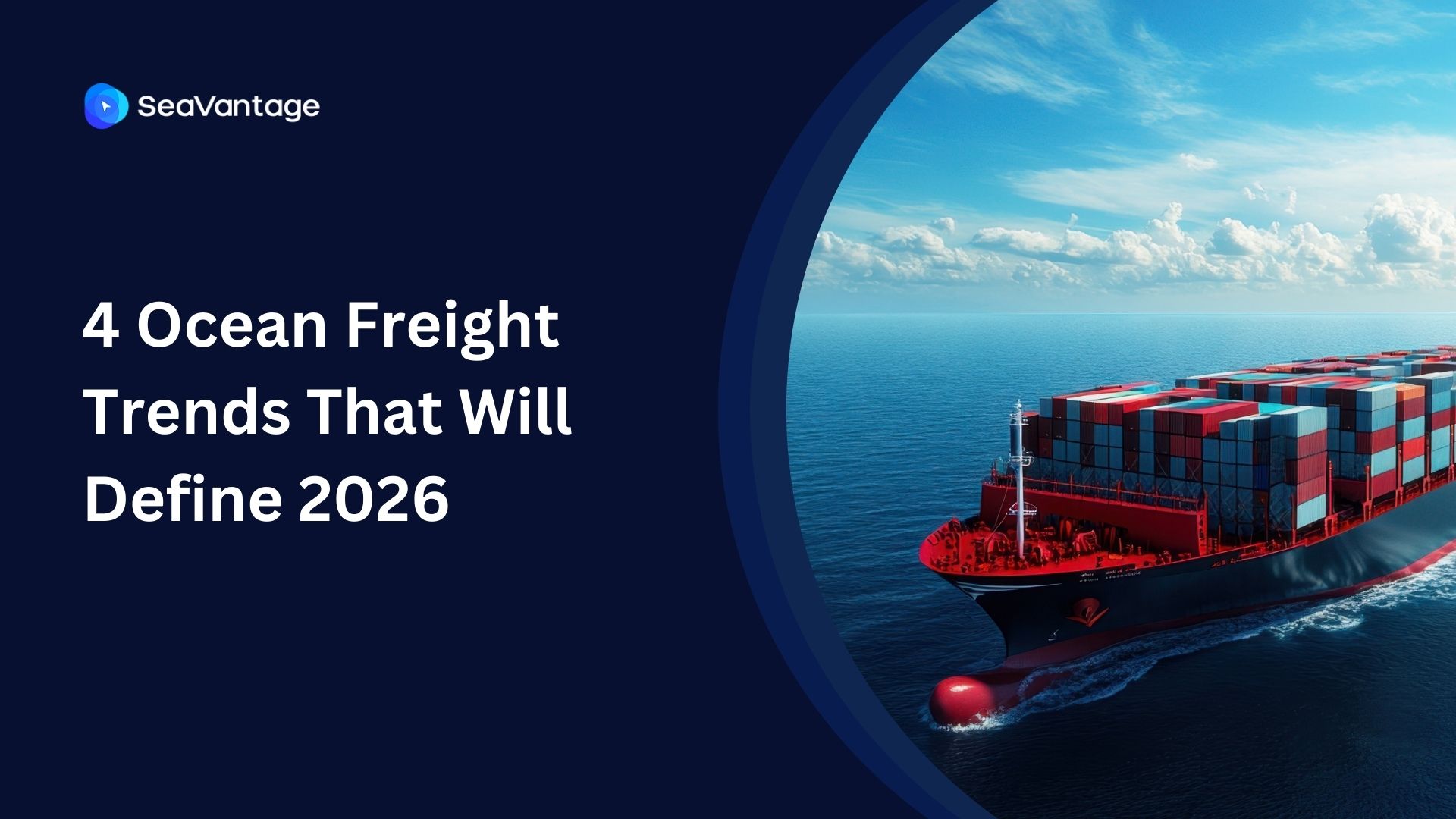Russia-Ukraine Conflict: 4 Ways it is Impacting Ocean Supply Chain

The invasion of Ukraine by Russian troops has led to multiple fast-changing developments in global ocean supply chains that are still reeling from the ongoing pandemic. Stakeholders are bracing for the potential impacts of this conflict on shipments, freight rates, and additional logistics capacity constraints.
Presently, all Ukrainian seaports have been closed and multiple major ocean carriers have announced the cancellation of port calls to Russia and Ukraine. The Ukrainian port of Kherson, a strategic black seaport, has fallen to Russian forces, and Russian vessels are being blocked by major European ports.
Here are four ways this conflict is already impacting global ocean supply chains.
Vessel routing constraints
The clash in Ukraine, the second-largest country by area in Europe, has caused container and bulk carrier vessels to be rerouted, increasing concerns over additional supply chain disruptions. With the ports in Ukraine closed, passage through ports in Ukraine has become impossible and major container lines are rerouting their black sea service to adapt to the imposition of sanctions on Russia. Ocean carrier, CMA CGM has suspended port calls to Ukraine until further notice.
Port congestion and delays
Global port congestion and delays have been further exacerbated by the invasion of Ukraine. Vessels have been skipping port calls through Ukraine, Russia, and neighboring ports due to dangerous conditions of vessels coming under artillery fire. Last week, an Estonian-owned cargo ship sunk off Ukraine's Black Sea port of Odesa after an explosion (Image 1). Within that same week, a Bangladeshi vessel was also hit by another missile. Due to the increasing number of vessels docking at rerouted ports, delays and dwell times have drastically increased at European ports since the invasion. Data from Seavantage's Port Insight platform (Image 2) shows a steep decline in the number of anchored vessels at the port of Odesa.


Reduction in ocean shipments
Global ocean ships connected to Russia and Ukraine have dropped since the invasion. Major ocean container ship operators, MAERSK, MSC, ONE have announced the temporary suspension of their services to Russian ports including ports nearby Ukraine. The government of the UK has banned the entry of all incoming Russian vessels to its ports after the implementation of sanctions in Russia. The suspension of operations has caused a reduction in cargo transport throughout Europe.
Surging freight rates
Shortly after the invasion, ocean freights rates have been skyrocketing, passing record highs. Freight rates have been increasing due to the rerouting of vessels, increasing fuel costs, and some carriers adding “war risk charges”.
Gaining visibility in your ocean supply chain
The threat of disruptions to global supply chains from this conflict makes proactively managing these disruptions imperative. With our visibility platform, you can track cargo with predicted ETAs, gain insight into ports and terminals, and be the best prepared.
SeaVantage offers real-time tracking and visibility solutions for freight forwarders, carriers, cargo owners, and terminal/port operators. Our proprietary AI Maritime Traffic Network provides a more informed prediction of vessel or container arrival time for all stakeholders in the supply chain by bringing in additional data streams.
Email: sales@seavantage.com
Tel: (+82) 02-3444-7302 / (+82) 02-3444-7303
2025년 9월, 주요 글로벌 항만에서 어떤 운송사가 가장 긴 선박 체류 시간을 기록했는지 확인해보세요. 트렌드를 비교하고, 지연을 파악하며, 전체 항만 데이터를 통해 운송 전략을 최적화할 수 있습니다.
2025년 8월, 주요 글로벌 항만에서 어떤 운송사가 가장 긴 선박 체류 시간을 기록했는지 확인해보세요. 트렌드를 비교하고, 지연을 파악하며, 전체 항만 데이터를 통해 운송 전략을 최적화할 수 있습니다.
2025년 7월, 주요 글로벌 항만에서 어떤 운송사가 가장 긴 선박 체류 시간을 기록했는지 확인해보세요. 트렌드를 비교하고, 지연을 파악하며, 전체 항만 데이터를 통해 운송 전략을 최적화할 수 있습니다.
Explore how tariffs, blank sailings, port congestion, and canal disruptions reshaped global ocean shipping in 2025 — and what supply chain leaders must do next.
Is your ocean supply chain ready for 2026? Discover 4 critical trends, from weather disruptions to strategic booking, and how to adapt.
iscover the 4 critical ocean freight trends for 2026, from the Red Sea reopening and fleet overcapacity to shifting global trade maps. Prepare your supply chain now.



.svg)







.png)